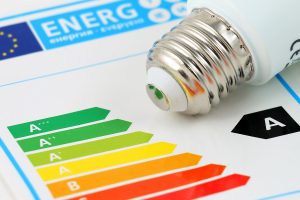Home energy audits are essential for homeowners who aim to enhance the efficiency, comfort, and sustainability of their living spaces. As energy costs continue to rise and environmental concerns gain prominence, understanding the importance of home energy audits has become increasingly vital. This comprehensive assessment provides insights into how energy is used and wasted within a home, offering actionable recommendations for improvements.
What Are Home Energy Audits?
A home energy audit is an evaluation of a home’s energy consumption and efficiency. Conducted by a professional energy auditor, this process involves a thorough inspection of the property to identify areas where energy is being lost and where improvements can be made to reduce energy consumption. The audit typically includes an examination of heating and cooling systems, insulation, windows, doors, lighting, and appliances.
The Process of Home Energy Audits
Initial Consultation:
The audit begins with a consultation where the auditor discusses the homeowner’s energy concerns and goals. This conversation helps to set expectations and tailor the audit to address specific issues.
Exterior Inspection:
The auditor examines the exterior of the home, looking for signs of energy inefficiency such as gaps, cracks, and poor insulation. They also assess the condition of the roof, windows, and doors.
Interior Inspection:
Inside the home, the auditor inspects insulation, HVAC systems, water heaters, and appliances. They may use tools such as infrared cameras to detect temperature variations and identify areas of heat loss or gain.
Blower Door Test:
A blower door test measures the airtightness of the home. By depressurizing the house, the auditor can identify leaks and drafts that contribute to energy waste.
Ductwork Inspection:
The auditor checks the ductwork for leaks and blockages that can reduce the efficiency of heating and cooling systems.
Lighting and Appliance Evaluation:
An analysis of lighting and appliances helps determine their energy efficiency. The auditor may recommend upgrades to more energy-efficient models.
Report and Recommendations:
After the inspection, the auditor provides a detailed report outlining their findings and recommendations. This report includes prioritized suggestions for improving energy efficiency, estimated costs, and potential savings.
Benefits of Home Energy Audits
Reduced Energy Costs:
One of the most significant benefits of home energy audits is the potential for reduced energy bills. By identifying and addressing areas of energy waste, homeowners can significantly lower their monthly utility expenses. Simple measures like sealing leaks, adding insulation, and upgrading to energy-efficient appliances can result in substantial savings.
Enhanced Comfort:
Addressing energy inefficiencies can lead to a more comfortable living environment. Improved insulation, better-sealed windows and doors, and efficient heating and cooling systems help maintain consistent indoor temperatures and eliminate drafts.
Increased Home Value:
Energy-efficient homes are more attractive to buyers. Investing in energy improvements can increase the resale value of a property. Potential buyers are often willing to pay a premium for homes with lower operating costs and a reduced environmental impact.
Environmental Impact:
Reducing energy consumption not only benefits homeowners financially but also has a positive impact on the environment. Lower energy usage means fewer greenhouse gas emissions, contributing to a reduction in the home’s carbon footprint.
Improved Health and Safety:
Home energy audits can identify safety hazards such as gas leaks, poor ventilation, and inadequate electrical systems. Addressing these issues enhances the overall safety and health of the household.
Informed Decision-Making:
The detailed report provided by the auditor equips homeowners with the information needed to make informed decisions about energy improvements. This knowledge empowers homeowners to prioritize upgrades based on their budget and goals.
Implementing Recommendations from Home Energy Audits
Sealing and Insulation:
One of the most cost-effective improvements is sealing gaps and adding insulation. This helps to prevent heat loss in the winter and keep the home cooler in the summer.
Upgrading HVAC Systems:
Replacing outdated heating and cooling systems with energy-efficient models can lead to significant energy savings. Regular maintenance of HVAC systems also ensures they operate at peak efficiency.
Installing Energy-Efficient Windows and Doors:
Upgrading to energy-efficient windows and doors can reduce heat transfer, improving the overall efficiency of the home. Look for products with a high Energy Star rating.
Switching to LED Lighting:
LED bulbs use significantly less energy than traditional incandescent bulbs and have a longer lifespan. Switching to LED lighting throughout the home can result in substantial energy savings.
Adopting Smart Home Technologies:
Smart thermostats, energy-efficient appliances, and home automation systems can optimize energy usage. These technologies allow homeowners to monitor and control energy consumption more effectively.
Regular Maintenance:
Regular maintenance of heating and cooling systems, appliances, and insulation ensures they continue to operate efficiently. This includes changing filters, cleaning ducts, and checking for leaks.
Conclusion
Home energy audits are an invaluable tool for homeowners looking to reduce energy costs, enhance comfort, and minimize their environmental impact. By identifying areas of energy waste and providing actionable recommendations, these audits offer a roadmap to a more efficient and sustainable home. Investing in energy improvements not only yields financial benefits but also contributes to a healthier living environment and a greener planet. As energy efficiency becomes increasingly important, home energy audits serve as a crucial step in achieving long-term sustainability and cost savings.
.







